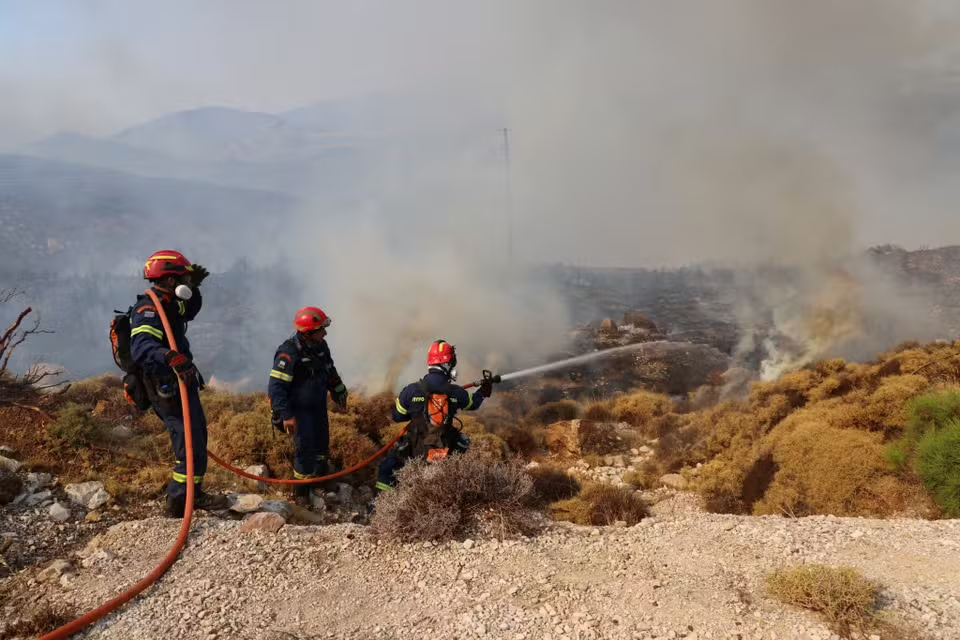“These are certainly the most difficult 24 hours of the firefighting season,” declared the president of the Union of Fire Officers. Greece has called on the EU civil protection mechanism to secure four additional water-bombing aircraft.

Greece was battling around twenty wildfires on Wednesday, August 13, facing what fire service spokesperson Vassilis Vathrakoyannis warned was “a very difficult day” due to violent wind gusts. “These are certainly the most difficult 24 hours of the fire season,” echoed Kostas Tsigas, president of the Union of Fire Officers.
“Just yesterday, 82 fires broke out — an exceptionally high number that, combined with strong winds, drought, and high temperatures, created enormous challenges,” Tsigas added, noting that most of those fires had been brought under control following a massive deployment of firefighters and aerial resources. Since last week, Greece has been gripped by winds exceeding 80 km/h and numerous outbreaks of fire.
By dawn on Wednesday, 33 aircraft and 4,850 firefighters had been mobilized across all active fronts, according to Vathrakoyannis. Fire crews were fighting 23 blazes still burning, including one near Patras, the country’s third-largest city.
On Tuesday, Greece had appealed to the EU civil protection mechanism to obtain four additional water-bombers, as more than 20,000 hectares have been destroyed by flames since June. Near the port of Patras, “a health center had to be evacuated on Tuesday, a scrapyard with around 100 cars burned, and several homes were damaged.”
The situation there has since improved, but a new blaze near the archaeological site of Vouteni once again threatens forests and homes, with the area blanketed in thick smoke.
On the island of Chios, firefighters remained deployed on two active fronts; the island had already suffered a devastating fire in June that destroyed over 4,000 hectares. The Greek coast guard reported helping to evacuate nearly 80 people from Chios and near Patras. “Fifteen firefighters were taken to hospital and needed first aid last night while working on fires in Achaia, Preveza, and Chios,” said Vathrakoyannis.
According to the national meteorological service EMY, temperatures were expected to approach 40°C on Wednesday in parts of western Greece, particularly in the western Peloponnese.
Twenty Villages Evacuated
The most concerning fire fronts for authorities are located on the island of Zakynthos in the Ionian Sea (West), on Chios in the northeastern Aegean, in Preveza in the west of the country, and in the Achaia region in the northwest Peloponnese, where around twenty villages were evacuated on Tuesday.
On Zakynthos, roughly 1,500 hectares of forest and farmland have been destroyed, while in Achaia, the mayor of Western Achaia, Grigoris Alexopoulos, described the situation as a “major disaster.”
